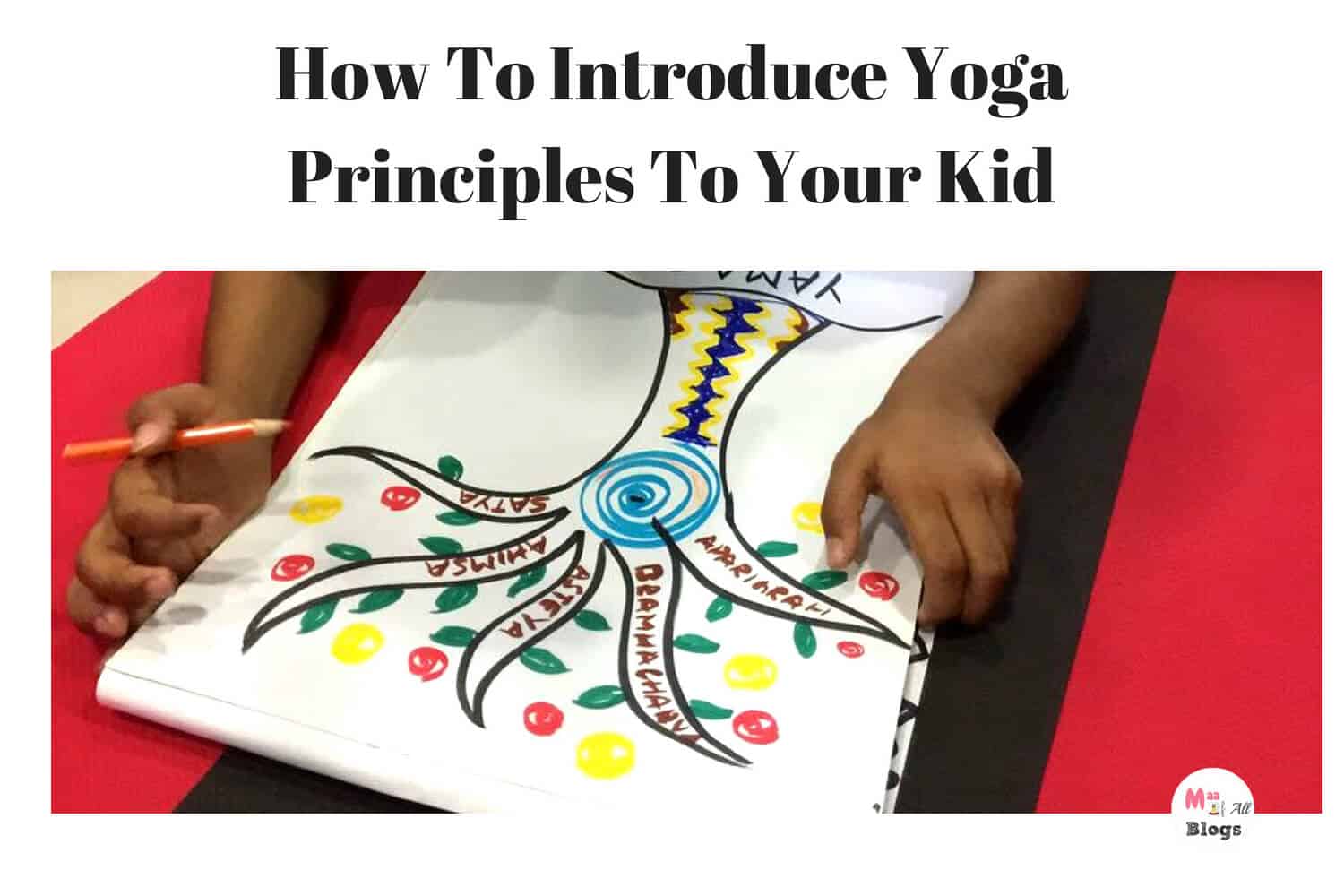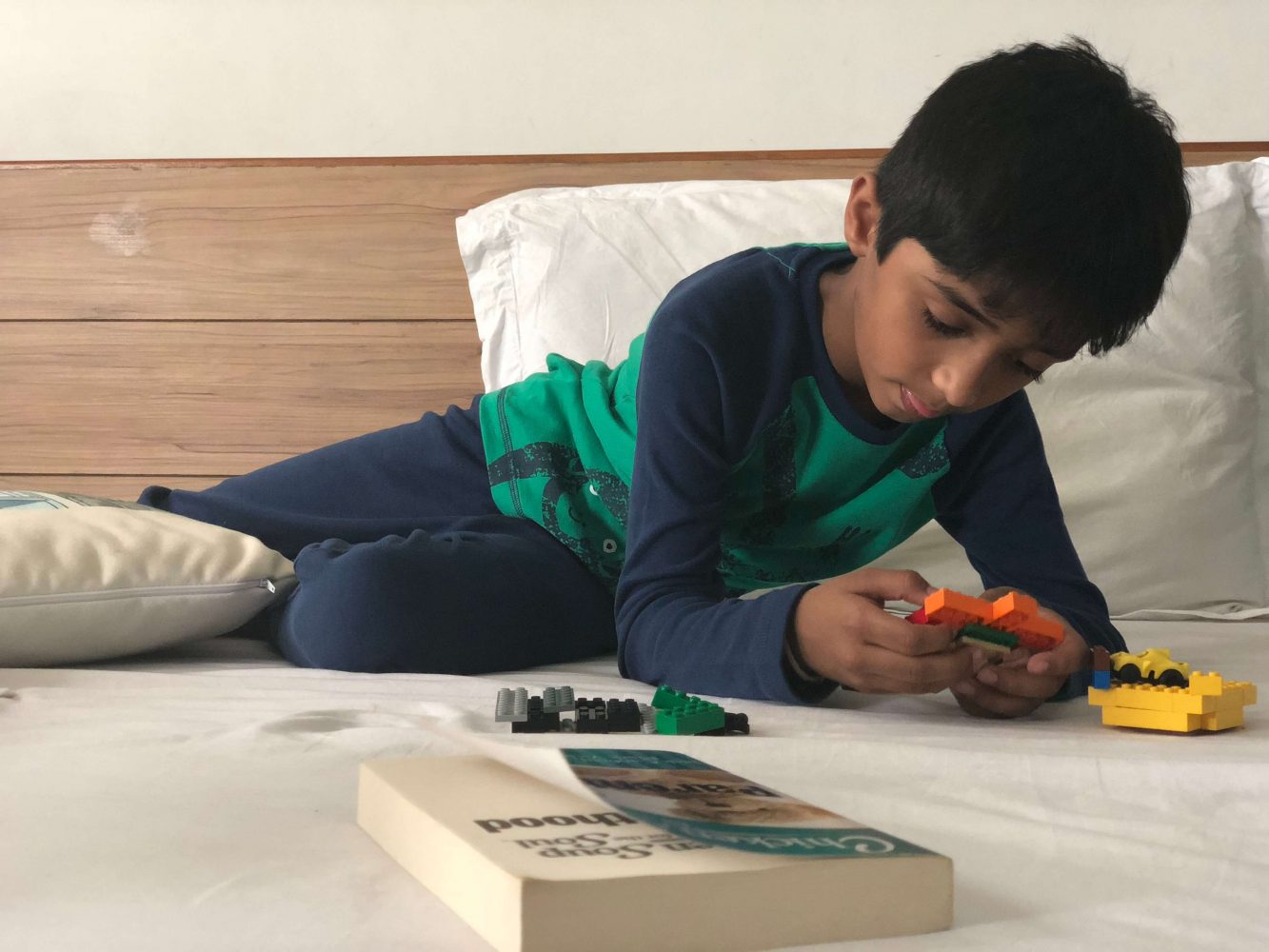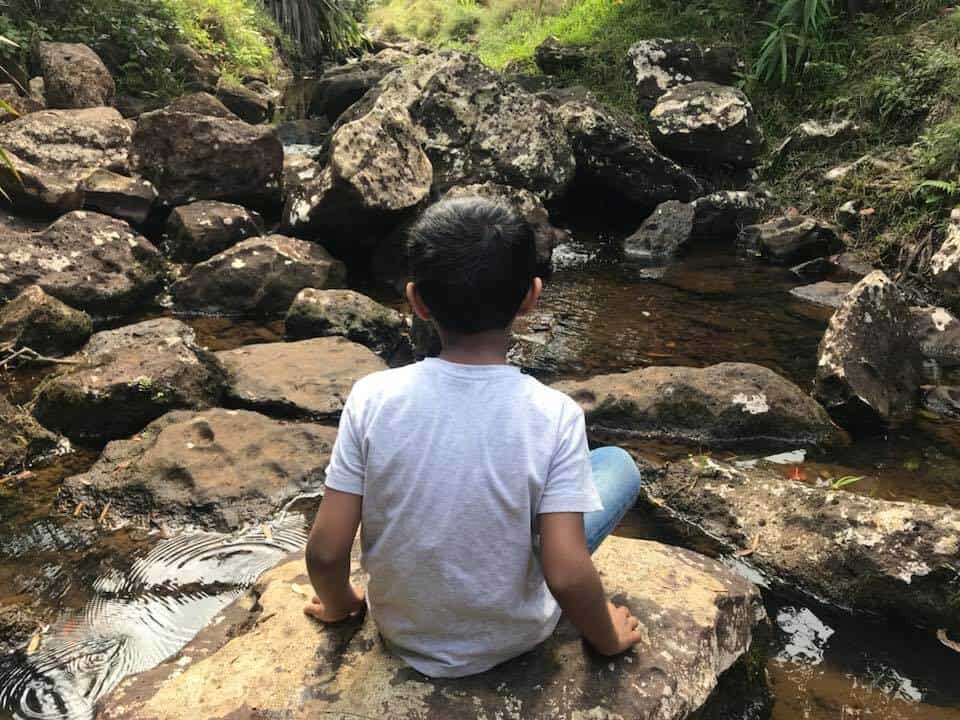
Yamas for kids
When you adapt yoga in your life the one thing you need to realise is that it’s your own journey and every time you crack a pose there is an advanced version to it. The other thing you need to realise is that yoga practice is not about cracking a pose, it is adapting to the whole lifestyle, philosophy, and principles within you.
I have seen myself change internally and externally over the last few years after adopting yoga. If you had met me a few years back, I would have told you yoga is not for the likes of me. I had tried yoga many times but could not connect to it. It came to me one day when I found the right form, the right class, and the right teacher.
My younger one has seen my journey from the beginning and it is for this reason, I choose to believe that he has adapted it so easily in his life.
If you want to explain the basics of principles of yoga to your kids, simplify them, come to their level and let these be your guides;
Following the Yamas or self-restraint is the first step of yoga.
Ahimsa– Not hurting anyone in speech, action or even thoughts. Teach them to be kind and patient with their siblings and peers. Be a role model and practice patience with them.
Satya– I always thought that saying the truth is the right path, but my little one pointed out that if your truth is going to hurt someone then such a truth must be avoided. Had no idea, this was actually a part of yoga.
Asteya– Do not take something that does not belong to you. So for kids, it can be translated as not snatching toys or even eating your brother’s chocolates after you have eaten yours.
Brahmacharya– Use your energy wisely. The story Giraffes Can’t Dance by Giles Andreae is a resource to introduce the idea of brahmacharya in a simple way. The Giraffe focuses all his energy on achieving his dream to dance, believing in himself even if the other animals had their doubts. Tween and teen yogis could practice meditation on the mat. Meditation and mindfulness can lead you to a better understanding of self, your goals. Volunteering, spending some quality time with an elderly family member or younger sibling or taking time to raise money or awareness for a cause your family supports can all be outlets for the mindful use of brahmacharya.
Aparigraha– Talks about understanding the difference between need and greed. To explain this to kids you can cite examples of how having one or two Hotwheels cars would give you happiness and even after having an entire tower, you may always keep wanting more.
Think of these rules like mini moral science tips. If your little yogis have set on the path of yoga then inculcating these ideas in their mind when they are young would be the perfect way to sow the seed in their minds.














Earnestly, buddy, I have been on and off of yoga over the past few years and now I am on it finally with all my focus. However I didn’t know about the Yamas but I was planning on introducing yoga to the kiddo, I guess explaining these principles shall be the right beginning. Thanks!
Yes. This could be a great start for your kid!
Thoughtful and interesting ideas. Thanks for sharing these!
Thankyou!
Yes. It’s important to introduce the principles of yoga rather than just making them do it mechanically! And this sure is an eye-opener! You have given good examples and how to implement it!
Yes, you are right. since kids are very stubborn, introducing things like yoga to kids should be slow and gradual
Indeed these are Moral science tips which have their roots in our Yoga, must-to-do things to start the teachings for kids.
Yes, that’s right!
This post has all the calmness in it that is required. It is difficult to imbibe these values in today’s generation but you have proved it is not at all impossible! The perfect explanation makes them understand the values and inculcate them in their lives too! 🙂
I’m not a mommy but this is surely gonna be of help in future 🙂
Good Luck for the future Yogeeta!
This post is really helpful and informative for the mommies to teach their little ones yoga asanas.
Very true!
This is really a very holistic approach to a better living. The earlier we start, the better it is for the kids.
That is right, Jhilmil!
This is a really helpful post for moms who want to introduce the good habit of Yoga to their kids.
True
I definitely agree with you. Inculcating such things at a young age is beneficial in the long run. What we sow at a young age will reap us good things in the future. I am really inspired with this post and would definitely try to introduce this in my daughter’s life and schedule.
Yes. Very right Rakhi!
Wow! What a mind-blowing concept to make your kids aware of high moral values. Really appreciate you sharing this with us.
Thankyou Nisha!
Awesome post, I loved it as it is focused on sharing the principles of yoga with your children.
Thankyou Priyanka!
Teaching our kids to do yoga at their young age is really great. This is helping them to be healthier and fit as well.
Yes. Yoga is very important for the kids!
Yoga must be a ritual for everyone to live a healthy life, I m also teaching my kids a few yoga asanas to make them understand its importance.
Great start Preeti!
Introducing yoga to kids early in life is very useful. I am glad that my daughter’s school has implemented 5 minutes of meditation and yoga every alternate day. It provides mindful calmness and alertness too.
I hope all schools start implementing yoga in their schedule.
Teaching our kids to do yoga at their young age is really great. Helping them to be healthier and fit as well.
That’s right Shubhada!
Yoga has so many immense benefits. It’s best to make kids habitual to yoga at a young age itself:)
Yoga has uncountable benefits and not just for kids but for everyone.
This post is really amazing and easy to follow and it makes your kids understand Yoga in their own ways.
Thankyou Namrata!